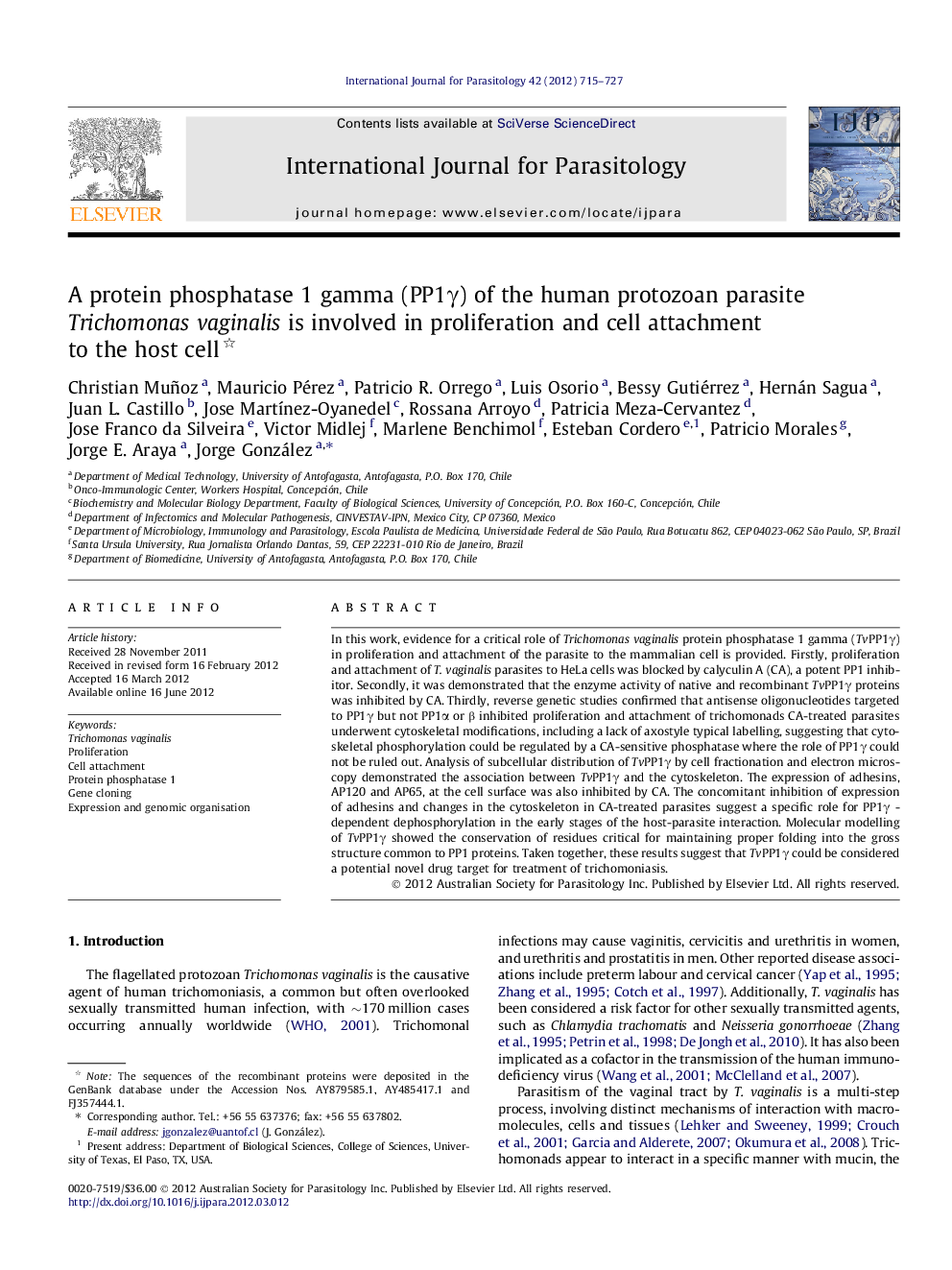| Article ID | Journal | Published Year | Pages | File Type |
|---|---|---|---|---|
| 2436074 | International Journal for Parasitology | 2012 | 13 Pages |
In this work, evidence for a critical role of Trichomonas vaginalis protein phosphatase 1 gamma (TvPP1γ) in proliferation and attachment of the parasite to the mammalian cell is provided. Firstly, proliferation and attachment of T. vaginalis parasites to HeLa cells was blocked by calyculin A (CA), a potent PP1 inhibitor. Secondly, it was demonstrated that the enzyme activity of native and recombinant TvPP1γ proteins was inhibited by CA. Thirdly, reverse genetic studies confirmed that antisense oligonucleotides targeted to PP1γ but not PP1α or β inhibited proliferation and attachment of trichomonads CA-treated parasites underwent cytoskeletal modifications, including a lack of axostyle typical labelling, suggesting that cytoskeletal phosphorylation could be regulated by a CA-sensitive phosphatase where the role of PP1γ could not be ruled out. Analysis of subcellular distribution of TvPP1γ by cell fractionation and electron microscopy demonstrated the association between TvPP1γ and the cytoskeleton. The expression of adhesins, AP120 and AP65, at the cell surface was also inhibited by CA. The concomitant inhibition of expression of adhesins and changes in the cytoskeleton in CA-treated parasites suggest a specific role for PP1γ -dependent dephosphorylation in the early stages of the host-parasite interaction. Molecular modelling of TvPP1γ showed the conservation of residues critical for maintaining proper folding into the gross structure common to PP1 proteins. Taken together, these results suggest that TvPP1γ could be considered a potential novel drug target for treatment of trichomoniasis.
Graphical abstractFigure optionsDownload full-size imageDownload high-quality image (48 K)Download as PowerPoint slideHighlights► Proliferation and cells attachment of Trichomonas vaginalis is blocked by calyculin A. ► The enzyme activity of native and recombinant TvPP1γ proteins is inhibited by CA. ► PP1γ antisense oligonucleotides inhibit trichomonal proliferation and attachment. ► PP1γ of T. vaginalis appears to regulate the cytoskeletal phosphorylation. ► Trichomonas vaginalis PP1γ could be considered as a potential drug target.
